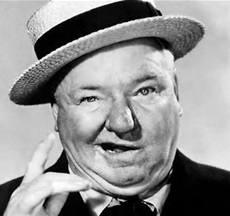When a federal court judge ruled on Feb. 8, 2017, that the U.S. Department of Labor’s fiduciary rule must still stand despite furious protests from the financial services lobby, it did not mean individual investors would automatically be protected from errant financial rep who continue to sell products that are not in the best interests of their clients.
Based on the DOL regulations, which face a compliance deadline on April 10, 2017, the DOL says investments must be suitable and in the investor’s best interests. Further, the financial rep selling products must also disclose their conflicts of interest when they recommend buying and selling any financial product, whether it is a mutual fund, annuity, separate account, or especially anything offered in 401(k) accounts.
While this may sound simple to average investors, telling the truth often has been bad business for the financial services industry.
The reason: selling investments that often have commodity-like performance returns means that financial reps are usually paid under-the-table fees (such as revenue sharing or 12b-1 fee) that are more expensive and don’t deliver net comparable returns with fewer fees and expenses. This is all covered in the book How 401(k) Fees Destroy Wealth and What Investors Can Do To Protect Themselves.
Of course, the multi-million financial services lobby opposes disclosing conflicts of interest and anything else in the best interests of average investors and people planning for retirement. A partial list of the groups that sued the DOL in the Dallas federal court include the U.S. Chamber of Commerce, the Financial Services Institute, the Financial Services Roundtable, the Insured Retirement Institute, and the Securities Industry and Financial Markets Association.
In short, the financial services industry has operated for many decades under the assumption that they should never give a sucker an even break.
The Industry is Unrepentant
Opposing the fiduciary standard and anything else that benefits average investors is a policy foundation of the Republican Party. In a recent interview, White House National Economic Council Director Gary Cohn, who most recently was president and chief operating officer of the Goldman Sachs Group, said the DOL fiduciary rule is “bad. It is a bad rule for consumers…. This is like putting only healthy food on the menu because unhealthy food tastes good, but you still shouldn’t eat it because you might die younger.”
Of course, this is nonsense. Cohen also said the rule would limit the choices available to investors, another silly defense of a rule that puts the interests of investors ahead of financial salespeople, investment firms, insurance companies, and mutual fund companies.
Cohen meant to say that the DOL rule would limit the list of available investments that salespeople would be allowed to sell if they wanted to avoid getting caught selling investments that would receive under-the-table commissions or special fees or that were best suited for their clients.
While some significant investment industry companies and banks (Vanguard, Schwab, Betterment, Blackrock, and some robo-advisory firms) have changed their sales policies to disclose conflicts of interest, let’s not assume this was all done for altruistic reasons or because these firms have changed their business model to become investor advocates. On the contrary, these firms changed their business practices because they feared class action lawsuits.
Plus, many other substantial investment firms, banks, and insurance companies dominating the 401(k) market have not done so. They have built their companies on conflicts of interest and have been hugely profitable. These companies are standing on the sidelines now and waiting for another round of court challenges as they continue to push proprietary funds via national wholesaler networks that will wring out every last commission dollar from their less-informed clients. After all, that is a traditional business model that has worked for many decades.
So because the dust is still not settled, investors should still beware of financial products being sole until they can get an assurance from their financial salesperson that they adhere to the fiduciary standard and are working in the investor’s best interest. If possible, get it in writing. Caveat emptor is still a good practice in this predatory business.











